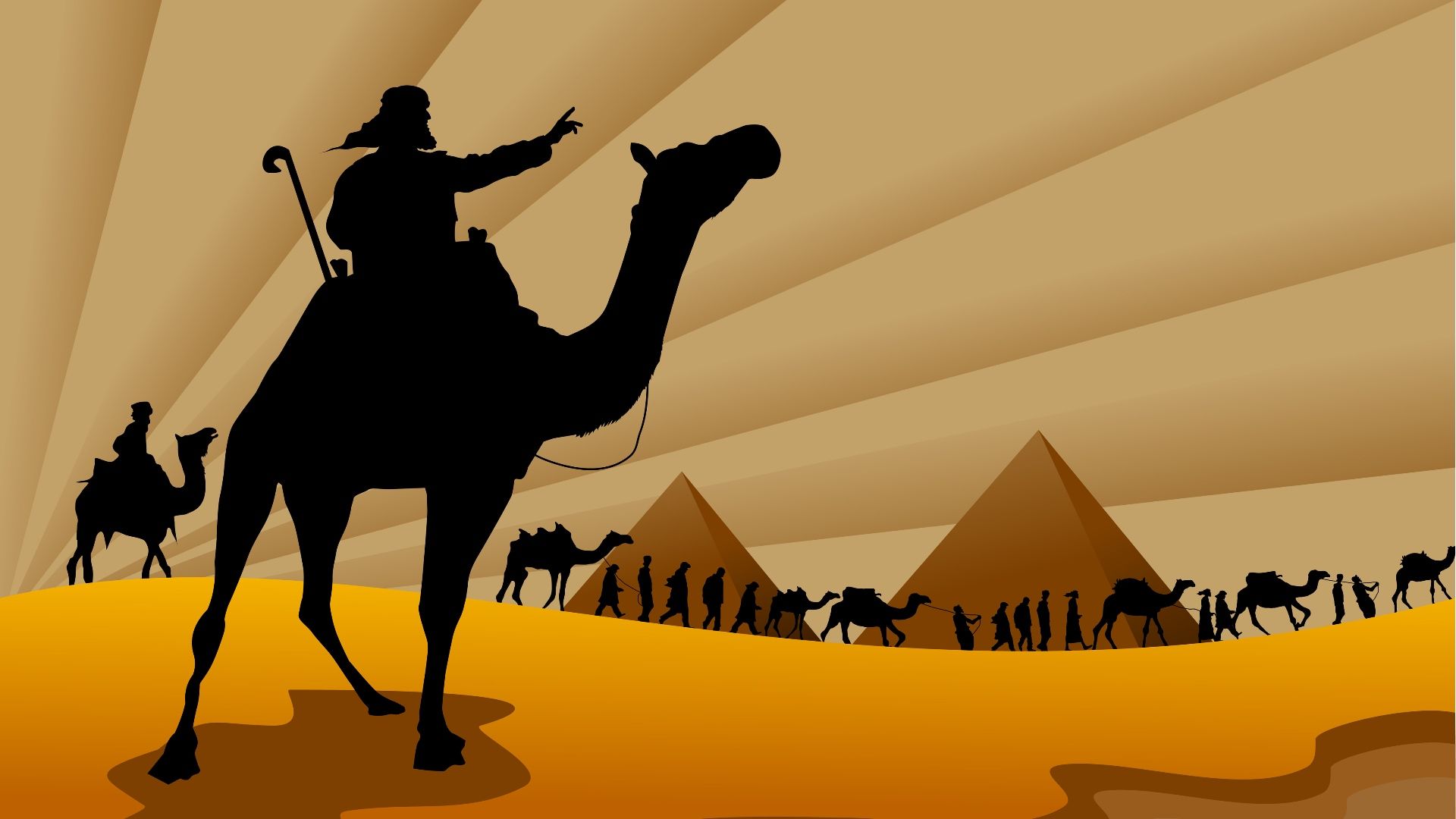Rest (Exodus 20:8-11; Matthew 11:28-30)

Big Idea: Escape the frantic pace of life and make room for our souls to grow by understanding two truths, and living out one practice.
Today is a big day. We’ve just finished week one of Gospel for Life Discipleship. If you’ve been tracking along with the daily lessons, well done! And if you haven’t, not to worry. We have designed this so that there’s no guilt. You can just wipe the slate clean and start again. And if you haven’t signed up, that’s okay too. We want you to benefit even if the only thing you do is to listen to these sermons and apply them to your life.
We’re about to go into week two, and the theme is going to surprise you. The theme is rest. We’re talking about forming key habits that will lead to a life of transformation. Why in the world would we talk about rest? In this crazy world, in which we all have way too much to do and not enough time to do it, who’s got time to rest?
In his book The Way We’re Working Isn’t Working, Tony Schwartz nails the problem:
The way we’re working isn’t working … More information than ever is available to us, and the speed of every transaction has increased exponentially, prompting a sense of permanent urgency and endless distraction. We have more customers and clients to please, more e-mails to answer, more phone calls to return, more tasks to juggle, more meetings to attend, more places to go, and more hours we feel we must work to avoid falling further behind. The technologies that make instant communication possible anywhere, at any time, speed up decision making, create efficiencies, and fuel a truly global marketplace. But too much of a good thing eventually becomes a bad thing. Left unmanaged and unregulated, these same technologies have the potential to overwhelm us…
No matter how much value we produce today—whether it’s measured in dollars or sales or goods or widgets—it’s never enough. We run faster, stretch out our arms further, and stay at work longer and later. We’re so busy trying to keep up that we stop noticing we’re in a Sisyphean race we can never win.
All this furious activity exacts a series of silent costs: less capacity for focused attention, less time for any given task, and less opportunity to think reflectively and long term. When we finally do get home at night, we have less energy for our families, less time to wind down and relax, and fewer hours to sleep. We return to work each morning feeling less rested, less than fully engaged, and less able to focus. It’s a vicious cycle that feeds on itself. Even for those who still manage to perform at high levels, there is a cost in overall satisfaction and fulfillment. The ethic of more, bigger, faster generates value that is narrow, shallow, and short term. More and more, paradoxically, leads to less and less.
Can you relate? I get tired just reading that. It feels increasingly like we’re caught on a treadmill and we can’t get off. We read books like Essentialism and In Praise of Slow, but our lives keep getting more complicated and tiring.
What should we do? One word: rest.

Today I want to do help us do that by unpacking two truths, and then giving us one practical takeaway. The truths are revolutionary, and the practice I will give you is countercultural. And yet applying the lessons I’m about to give you is desperately needed in today’s world. What I’m about to tell you is not optional. It’s necessary if we’re going to live according to God’s design.
How can we escape the frantic pace of life and make room for our souls to grow? By understanding two truths, and living out one practice.
Understand Two Truths
Here are the two truths that we need to understand, not just at a surface level but deep down in our souls. Here’s the first:
God created us to rest.
I once knew a young lady who came in one day with really bad news. Her car was wrecked. Unsalvageable. We asked what happened, thinking that there had been some terrible accident. There hadn’t been an accident. Instead, there’d been neglect. Since she owned the car, she had never looked at the maintenance schedule. She’d never done so much as an oil change. She hadn’t even checked the oil. One day the engine ran completely out of oil, the engine seized, and the car was wrecked. Of course, insurance covers you for an accident, but it doesn’t cover you for stupidity. She lost her car because she failed to follow the maintenance schedule designed by the manufacturer of that vehicle.
It’s easy to shake our heads at her. I guarantee you that if she got another car, she’s never made that mistake again. But the sad reality is that most of us are living life that way. We forget that God designed us for rest, and we neglect God’s maintenance schedule for our lives.
This is so much part of Scripture’s teaching that we see it in the original design for our lives. If you read the beginning of the Bible, you read the account of God’s creation of the world. What’s interesting is that God creates us in his image. This means that we are meant to be like God. God essentially says, “I’ve created you to be like me, to rule with me, and to act like me.” Then, the very next thing God does is to take a Sabbath and rest. If we’re going to be like God, it makes sense that we would do some of the same things that God does.
But that’s not all. When God called a people to himself, he entered into a covenant with them. He called them to be his people, and he promised to be their God. He gave them 613 commands so that they could know how to live in a way that would please him. Out of these 613 commands he gave ten commands that were unique — that were written on tablets and written with God’s own fingers on a mountain that was shaking with the very presence of God. Of those commands, the fourth and largest command was this one:
Remember the Sabbath day, to keep it holy. Six days you shall labor, and do all your work, but the seventh day is a Sabbath to the LORD your God. On it you shall not do any work, you, or your son, or your daughter, your male servant, or your female servant, or your livestock, or the sojourner who is within your gates. For in six days the LORD made heaven and earth, the sea, and all that is in them, and rested on the seventh day. Therefore the LORD blessed the Sabbath day and made it holy. (Exodus 20:8-11)
What’s funny is that a lot of us bristle at this command. When you look at it, it’s a gift. God never says what we’re supposed to do on this day. He didn’t say what to do, but he said what not to do. Don’t work. Don’t make it a day like every other day. You, and everyone around you (even the animals!) are to make this one day different.
Think about this for a minute. God gives a list of his ten big commands for us to follow. One of them is that we take a break and don’t work all the time. Don’t work yourself to death seven days a week. Take one day and do something different.
This was so important to God that it came to be known as a sign of God’s relationship with Israel, part of his covenant. In Deuteronomy 5, it becomes tied with God’s deliverance of Israel from Egypt as well as with creation. It’s a huge deal.
Of course, there’s a lot of debate about how we apply it today. The best line that I’ve read to help me understand it is by someone I can’t even remember now: While others like to debate the issue of Sabbath, I prefer to take one. The Sabbath isn’t something to debate. It’s something to enjoy.
Christopher Ash writes:
I hope we can all agree that the “six day one day” pattern of work and rest is hard-wired into creation and therefore into the human race. Behind the Sabbath commandment lies a creation pattern. Even if the Sabbath is no longer an old-covenant religious obligation, we are simply foolish to behave as though we no longer need a day off each week.
Here’s the first truth we need to understand at a very deep level: God made us to rest. He made us with a maintenance schedule that we ignore to our peril. We were made for a pattern of six days work and one day rest. We don’t rest because there’s no more work to do. We rest because God has made us to rest. We work because he invites us to do more than exhaust ourselves. We rest because he’s given us the gift of rest.
Jesus offers us rest.
Here’s the second truth we need to grasp. Jesus saved us for rest. In Matthew 11, Jesus says these beautiful words:
Come to me, all who labor and are heavy laden, and I will give you rest. Take my yoke upon you, and learn from me, for I am gentle and lowly in heart, and you will find rest for your souls. For my yoke is easy, and my burden is light.” (Matthew 11:28-30)
I love what Ray Ortlund says about this passage:
“I will give you rest” (Matthew 11:28). The gospel in five simple, short words. Grateful.
It’s one of the most beautiful and hopeful passages in all of Scripture in which Jesus addresses those of us who are weary and burdened. I’ve been doing some reading lately on telomeres. Have you read about these? The DNA of every chromosome in your body has a protective sheath of proteins at the end called telomeres. They’re like the cap at the end of your shoelace that keeps it from fraying. The problem? When your shoelace tips wear down, the shoelaces eventually become unusable. When your telomeres wear down, your cells stop dividing. It’s the reason that humans grow old and eventually die.
In other words, living causes us to wear down and fray right down to the very chromosomes of our body. Life beats us up. Dr. Susan Koven practices internal medicine at Massachusetts General Hospital. In a recent (2013) Boston Globe column, she wrote:
In the past few years, I’ve observed an epidemic of sorts: patient after patient suffering from the same condition. The symptoms of this condition include fatigue, irritability, insomnia, anxiety, headaches, heartburn, bowel disturbances, back pain, and weight gain. There are no blood tests or X-rays diagnostic of this condition, and yet it’s easy to recognize. The condition is excessive busyness.
And to those of us who feel this way — which is pretty much everyone! — Jesus offers rest.
For those of us who have trusted in Jesus, we can approach him in our brokenness and need, and rest in the fact that we have nothing to prove. We are completely and fully accepted in him. When we reach the end of our resources, we haven’t even begun to tap into his resources and sufficiency. Don’t miss the Sabbath rest you have in Jesus.
You see, Jesus doesn’t offer us only rest for the body. He offers us rest for the soul.
We need rest from the anxiety and strain of our overwork, which is really an attempt to justify ourselves—to gain the money or the status or the reputation we think we have to have. Avoiding overwork requires deep rest in Christ’s finished work for your salvation (Hebrews 4:1–10). Only then will you be able to “walk away” regularly from your vocational work and rest. (Tim Keller)
Jesus promises rest for those who know guilt in their souls, who are carrying burdens beyond their capacity to bear, to those who are weary of life and the injustices of the age. Jesus promises his rest and comfort and transformation. All who are tired and weary are invited to receive this rest as a gift. It’s rest not just for the body, but rest for the soul.
These are the two truths we need to understand at a deep level: God created us to rest, and Jesus offers us rest. Now for one practical application.
Live Out One Practice
And so we can live life out of rest. And here’s one practical way to do so. In today’s always-on, 24/7 world, it will be an act of courage. Here it is: build the habit of regular rest into your life. Why? Because God created you for rest, and Jesus offers you rest for the gospel. Begin small if you need to, but begin to build into your life a regular pattern of rest.
Let me tell you what it looks like in my life, before I ask you to consider what it could look like in yours. I always have a ton of work to do. When I prepared this sermon, I checked and found that I had 350 emails to process and about 60 items on my to-do list.
Every Friday — which happens to be my weekly day off — it doesn’t matter how many emails or tasks need my attention. One day a week I day with two basic rules:
- I do no work
- I pursue activities that bring life to my soul
It’s a weekly reminder in my life of two basic realities: God made me to need rest, and Jesus gives me rest. It’s a weekly reminder that I am more than what I do.
One author wrote about this a long time ago, and I came across it again this week. “Take a day to let your life and soul breathe,” he wrote.
Sabbath is taking a day a week to remind myself that I did not make the world and that it will continue to exist without my efforts.
Sabbath is a day when my work is done, even if it isn’t.
Sabbath is a day when my job is to enjoy. Period.
Sabbath is a day when I am fully available to myself and those I love most.
Sabbath is a day when I remember that when God made the world, he saw that it was good.
Sabbath is a day when I produce nothing.
Sabbath is a day when I remind myself that I am not a machine.
Sabbath is a day when at the end I say, “I didn’t do anything today,” and I don’t add, “And I feel so guilty.”
Sabbath is a day when my phone is turned off, I don’t check my email, and you can’t get ahold of me.
Jesus wants to heal our souls, wants to give us the shalom of God. And so we have to stop. We have to slow down. We have to sit still and stare out the window and let the engine come to an idle.
I have to be honest. It took a lot of work to get to this point, and I still struggle and fail. I don’t know what it will look like in your life. But I do know this: God made you to need regular rest. He created you to function best according to a 6/1 ratio of work days to rest days. And Jesus offers you rest for your soul. You can rest in his finished work and enter even more deeply into your Sabbaths because he gives you rest not only for your body but for your soul.
So let me encourage you: Build a regular habit of rest in your life. Start with whatever you can, and aim for a full day. If you’re part of G4L Discipleship, we’ll guide you this week in considering how to apply this in your life.
Bernard Lagat is a long-distance runner. He owns seven American records. He finished fourth in the 2012 Olympics. He’s 42 years old, and he’s still running.
What’s his secret? Every Fall he does something that is completely foreign to most elite runners around the globe: he takes a five-week break. According to an article in The New York Times, “He will toss his sneakers into a closet and pig out for five weeks. No running. No sit-ups, no heavy-lifting, except for a fork.” He will also coach his son’s soccer team.
Lagat says that his schedule has been very effective. “My runs are very hard,” he said. “Everything I do is hard …. But the body is tired. You’re not a machine. Rest is a good thing.”
You are not a machine. Rest is a good thing. Escape the frantic pace of life and make room for our souls to grow by understanding two truths: that God made you to rest, and that Jesus offers rest. And then live out one practice: build a regular pattern of rest into your life.





